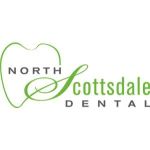Tips for Healthy Teeth and Gums: A Comprehensive Guide
Maintaining healthy teeth and gums is essential for overall well-being, and it can significantly enhance your confidence and quality of life. As someone who values the importance of oral hygiene, I’ve gathered useful insights to help you ensure your teeth and gums remain in top condition. This article offers practical tips and suggestions for optimal dental care that everyone can easily incorporate into their daily routine.
1. Brush Your Teeth Regularly with the Right Technique
One of the most fundamental practices for keeping your teeth and gums healthy is brushing your teeth twice a day. But it's not just about the frequency; it's also about doing it correctly. Many people don’t realize that brushing their teeth too aggressively can harm their gums and enamel. When brushing, use a soft-bristled toothbrush and gentle circular motions. Avoid back-and-forth scrubbing, which can lead to gum irritation and wear down the enamel.
If you’re unsure whether you’re using the correct technique, ask your dentist for guidance during your next visit. They can demonstrate the proper method and recommend the best type of toothbrush and toothpaste for your specific needs.
2. Floss Daily to Remove Plaque and Food Particles
While brushing is essential, it doesn’t reach every corner of your mouth. This is where flossing comes in. Flossing helps to remove food particles and plaque buildup between your teeth and under the gum line, areas that your toothbrush can’t clean effectively.
Flossing once a day, preferably before bedtime, helps prevent gum disease and cavities. If you find traditional flossing difficult, consider alternatives like floss picks or water flossers, which can be easier to use and just as effective.
3. Rinse with an Antibacterial Mouthwash
An antibacterial mouthwash is an excellent addition to your oral hygiene routine. It helps reduce plaque, fight bacteria, and freshen your breath. Choose a mouthwash that’s alcohol-free, as alcohol-based mouthwashes can sometimes dry out your mouth, making it more susceptible to bacteria growth. Swish the mouthwash around for 30 seconds after brushing and flossing to ensure your mouth remains fresh and clean throughout the day.
4. Maintain a Balanced Diet for Strong Teeth and Gums
Your diet plays a crucial role in your oral health. Foods rich in vitamins and minerals help support healthy teeth and gums. For example, calcium-rich foods like dairy, leafy greens, and fortified plant milks help strengthen tooth enamel. Vitamin C, found in citrus fruits, strawberries, and bell peppers, is essential for gum health, as it helps prevent gum disease and inflammation.
On the flip side, sugary and acidic foods can contribute to tooth decay and enamel erosion. Limiting sugary snacks and drinks, especially between meals, can help prevent cavities and other oral health issues.
5. Visit Your Dentist Regularly for Professional Cleanings and Checkups
Regular dental checkups are crucial for maintaining oral health. While brushing and flossing at home are essential, professional cleanings help remove tartar and plaque that build up over time. Your dentist or hygienist will also check for signs of gum disease, cavities, and other oral health issues that might not be noticeable at first.
It's recommended to schedule a checkup every six months, but if you have specific concerns, like gum sensitivity or frequent cavities, your dentist might suggest more frequent visits.
6. Stay Hydrated to Support Oral Health
Drinking water throughout the day is vital for keeping your mouth moist and helping your body flush out harmful bacteria. Saliva is essential for neutralizing acids and washing away food particles. Staying hydrated ensures your body produces enough saliva to protect your teeth and gums.
If you’re a fan of beverages like coffee or soda, try to reduce your intake. These drinks can stain your teeth, dry out your mouth, and contribute to tooth decay. Opting for water or herbal teas is a great way to support your oral health.
7. Avoid Smoking and Tobacco Products
Smoking and using tobacco products can lead to a variety of oral health problems, including gum disease, tooth loss, and oral cancer. Tobacco reduces blood flow to the gums, impairing their ability to heal and fight infection. If you smoke, quitting is one of the best things you can do for your overall health, including your oral hygiene.
If you’re struggling to quit, consider reaching out to a healthcare professional for support or resources to help you on your journey.
8. Keep Your Mouthguard Clean if You Use One
If you use a mouthguard for sports or teeth grinding, it’s important to clean it regularly. A dirty mouthguard can harbor bacteria, which could lead to infections or bad breath. Rinse your mouthguard with water after each use and clean it with soap and water or a mild mouthwash once a week. Also, store it in a clean, dry place to prevent it from getting contaminated.
9. Protect Your Teeth During Physical Activities
For those who engage in contact sports or high-risk physical activities, wearing a mouthguard can help protect your teeth from injury. A custom-fitted mouthguard provides the best protection, as it molds to your unique dental structure. Your dentist can help you get the right fit, ensuring maximum comfort and effectiveness.
By following these simple yet effective tips, you can ensure that your teeth and gums stay healthy for years to come. Healthy oral hygiene practices not only improve the appearance of your smile but also contribute to your overall health. So, whether you’re at home, at the gym, or at the office, maintaining a strong oral care routine is a small investment with big returns!







 Dr. Susan R. Richardson Overstreet, DDS4.0 (1 review)
Dr. Susan R. Richardson Overstreet, DDS4.0 (1 review) Community Health Care Hilltop Family Dental Clinic3.0 (188 review)
Community Health Care Hilltop Family Dental Clinic3.0 (188 review) Open Door Family Medical Center- Sleepy Hollow4.0 (215 review)
Open Door Family Medical Center- Sleepy Hollow4.0 (215 review) Lasting Smiles Dental Care4.0 (364 review)
Lasting Smiles Dental Care4.0 (364 review) North Scottsdale Dental4.0 (211 review)
North Scottsdale Dental4.0 (211 review) Dr. Eddie C. Chen, DMD & Associates5.0 (12 review)
Dr. Eddie C. Chen, DMD & Associates5.0 (12 review) The Importance of Oral Health Education During Pregnancy for a Healthy Pregnancy
The Importance of Oral Health Education During Pregnancy for a Healthy Pregnancy Best Tips for Brushing Your Teeth Properly for Healthy Gums: Essential Techniques for Oral Health
Best Tips for Brushing Your Teeth Properly for Healthy Gums: Essential Techniques for Oral Health Why Skipping Dental Checkups Can Lead to Bigger Oral Health Problems
Why Skipping Dental Checkups Can Lead to Bigger Oral Health Problems Advantages of Porcelain Dental Restorations
Advantages of Porcelain Dental Restorations How Can Diabetes Cause Tooth and Gum Problems? Preventing and Managing Oral Health Issues
How Can Diabetes Cause Tooth and Gum Problems? Preventing and Managing Oral Health Issues Healthy Habits for Promoting Good Oral Health and Hygiene: Tips for a Healthy Smile
Healthy Habits for Promoting Good Oral Health and Hygiene: Tips for a Healthy Smile